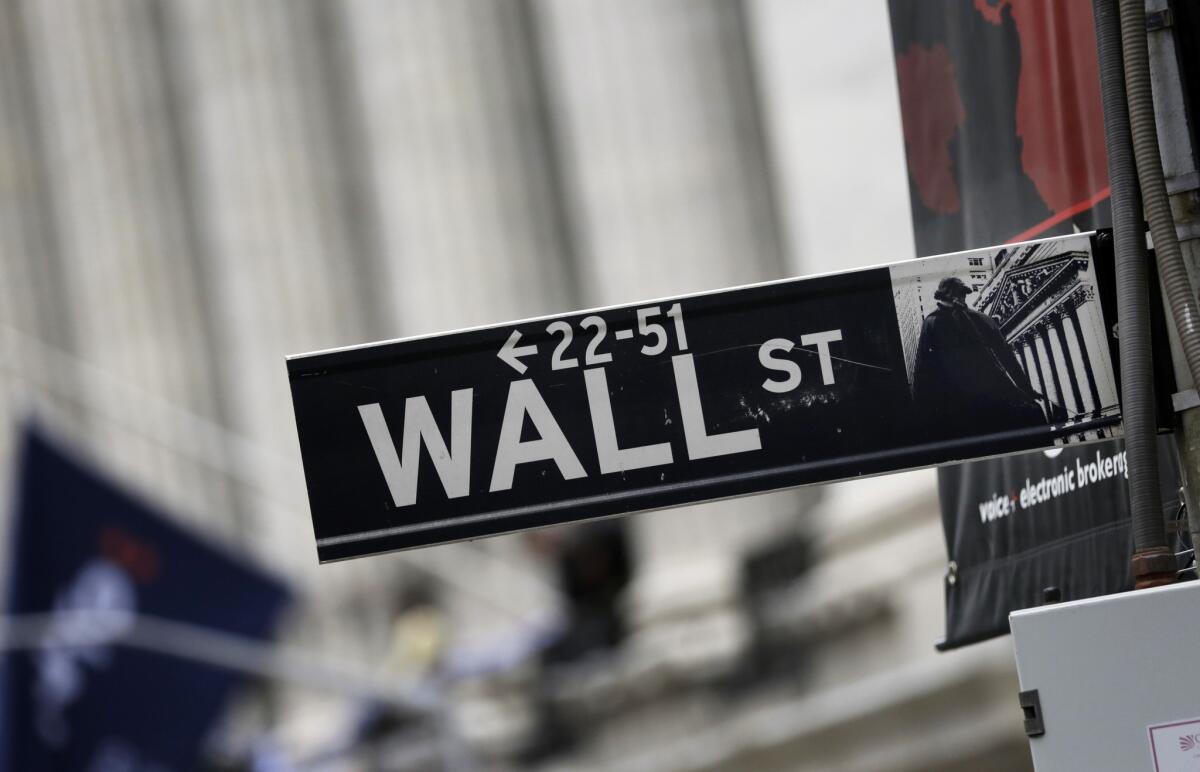Stocks falter after early gains as investors parse trade signals

Major U.S. stock indexes closed mixed Tuesday, shedding most of their gains from earlier in the day, after a published report revealed that an interim trade deal between the U.S. and China does not remove tariffs on Chinese goods.
The benchmark S&P 500 and Nasdaq composite finished slightly off their record highs from a day earlier. The S&P 500 index fell 4.98 points, or 0.2%, to 3,283.15. The index had been up as much as 0.2% earlier. The Nasdaq slid 22.60 points, or 0.2%, to 9,251.33. The Dow rose 32.62 points, or 0.1%, to 28,939.67.
The market’s late-afternoon burst of selling came a day before the U.S. and China were due to sign a preliminary trade agreement in Washington. Optimism that the deal would bring the two economic powerhouses closer to ending the dispute threatening global economic growth has helped drive markets higher for weeks.
Still, reports suggesting that U.S. tariffs on Chinese goods will remain in place until at least after this year’s election appeared to dim some investors’ enthusiasm over the deal.
“Would the market be more satisfied with a reduction in those tariffs? Absolutely,” said Quincy Krosby, chief market strategist at Prudential Financial. “Nonetheless, you don’t want to have an escalation in the tariff war. That was the most important thing for the market.”
Bond prices rose. The yield on the 10-year Treasury slipped to 1.81% from 1.84% late Monday.
President Trump and China’s chief negotiator, Liu He, are scheduled to sign a modest trade agreement Wednesday that calls for the U.S. to ease some sanctions on China. The U.S. dropped its designation of China as a currency manipulator in advance of the signing. Beijing, meanwhile, will step up its purchases of U.S. farm products and other goods.
With the trade issue entering a new stage, Wall Street is focusing on the rollout of corporate earnings reports over the next few weeks.
Several large banks were among the companies that kicked off the latest earnings season on Wall Street Tuesday. JPMorgan Chase rose 1.2% after the banking giant reported a surge in profits because of a blowout quarter from its trading desks. Wells Fargo did not fare as well. The bank’s stock slumped 5.4% as its profit and revenue dropped because of hefty costs and lower interest rates.
Delta Air Lines rose 3.3% after the company increased its fourth-quarter profit to $1.1 billion by adding more flights over the holiday period and packing them even more full of passengers.
Wall Street expects corporate profits for S&P 500 companies in the last three months of 2019 to be down by 2%. That would be the first time that earnings for the S&P 500 would have declined four quarters in a row since the period ending in mid-2016, according to FactSet.
Companies typically outperform forecasts and temper expectations for sharp declines by the time the bulk of financial reporting is done. Investors are more likely to focus on what management teams’ outlooks, especially with the prospect of less uncertainty over the U.S.-China trade dispute.
“What we want to hear is what companies are seeing from their own customers, what are they hearing?” said Krosby. “And are they more optimistic going into 2020?”
Nvidia led Tuesday’s slide in technology stocks. The chipmaker dropped 1.9%. Healthcare stocks led the gainers, receiving a big boost from Perrigo, which vaulted 12.6%. GameStop skidded 13.3% after the video game retail chain reported holiday sales that fell below expectations, partly due to lower demand for software and hardware.
Benchmark crude oil rose 15 cents to settle at $58.23 a barrel. Brent crude oil, the international standard, gained 29 cents to close at $64.49 a barrel.
Gold fell $6.00 to $1,542.40 per ounce and silver fell 25 cents to $17.67 per ounce.
The dollar rose to 110.00 Japanese yen from 109.93 yen on Monday. The euro weakened to $1.1128 from $1.1138.
More to Read
Inside the business of entertainment
The Wide Shot brings you news, analysis and insights on everything from streaming wars to production — and what it all means for the future.
You may occasionally receive promotional content from the Los Angeles Times.










